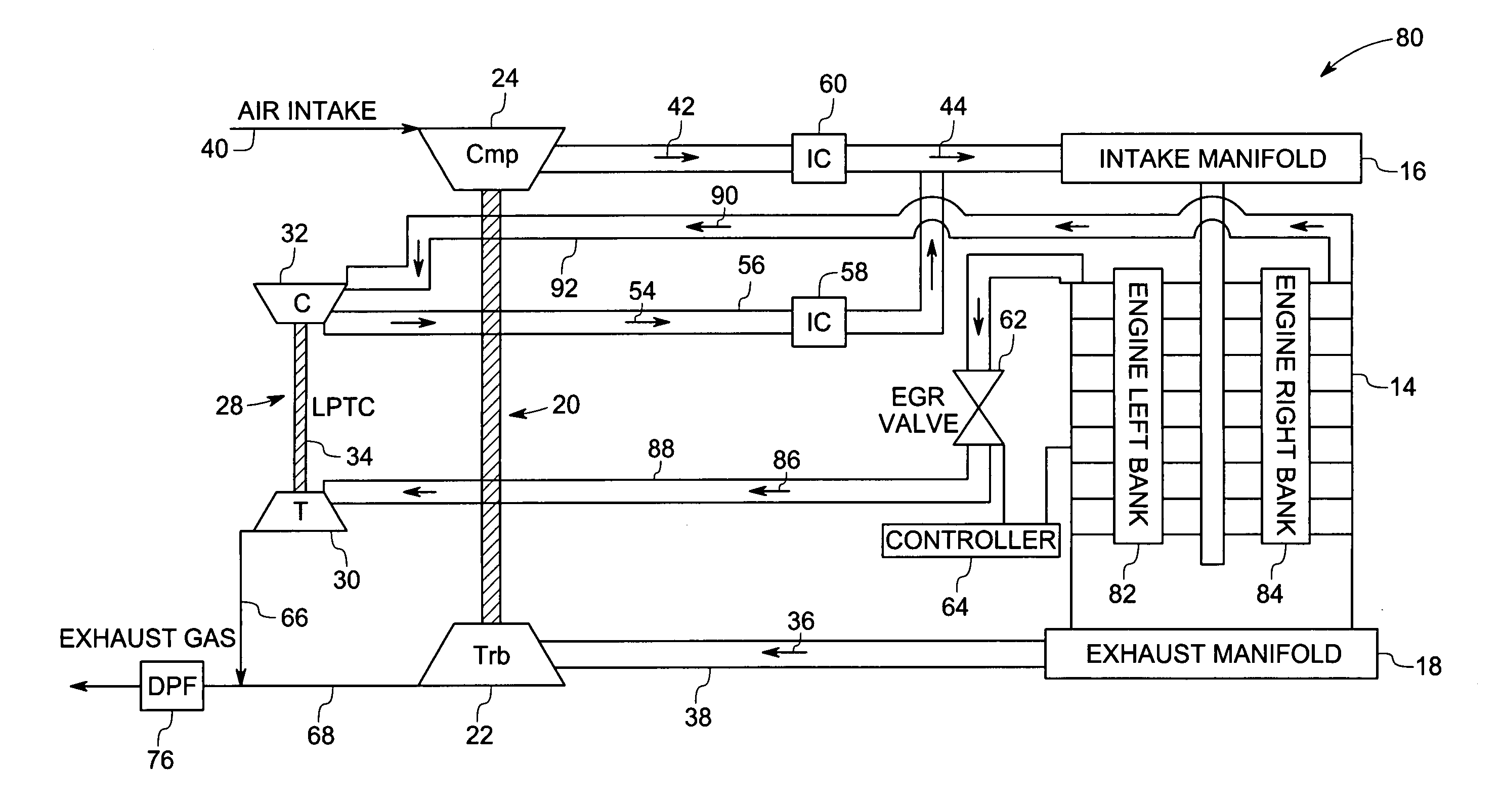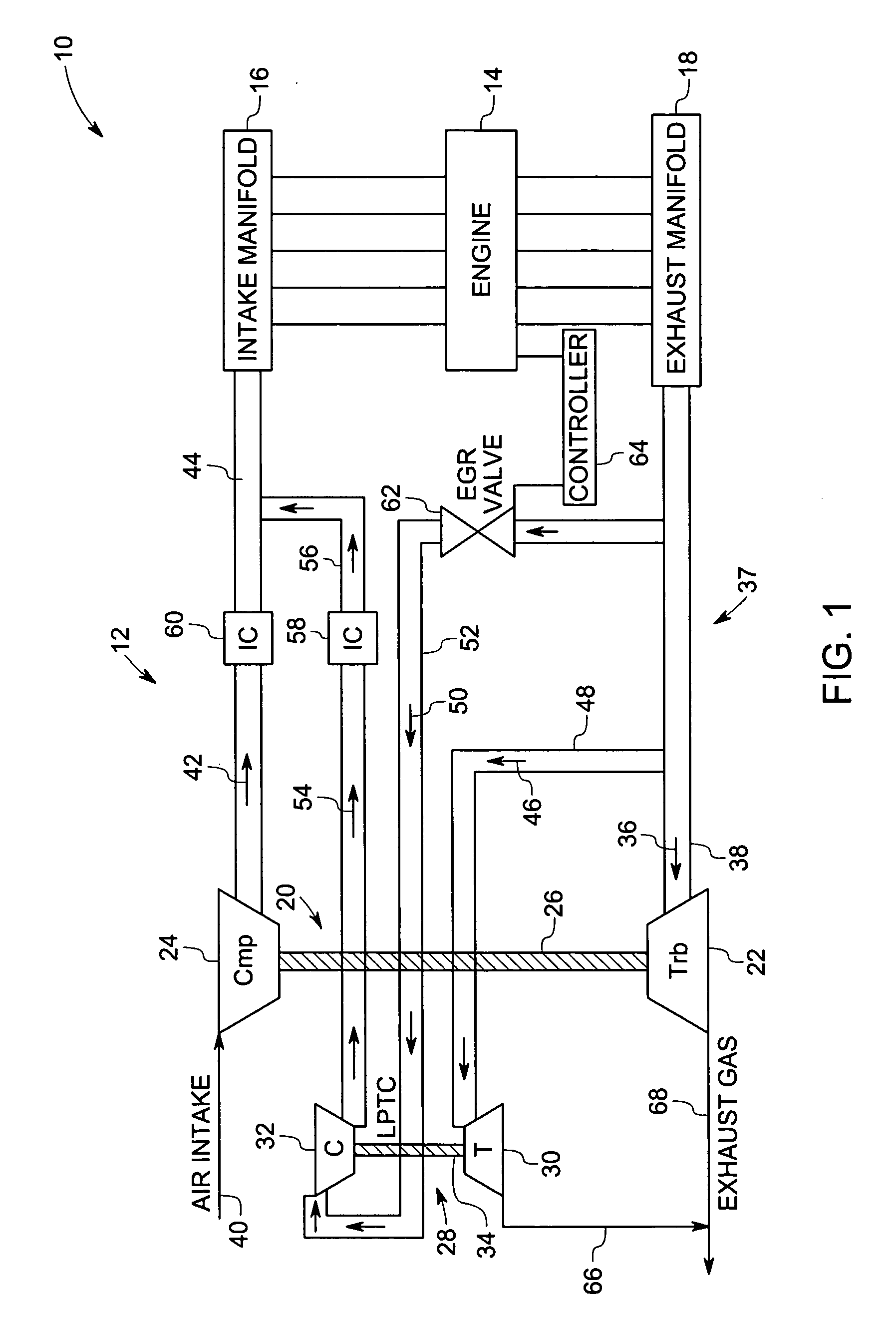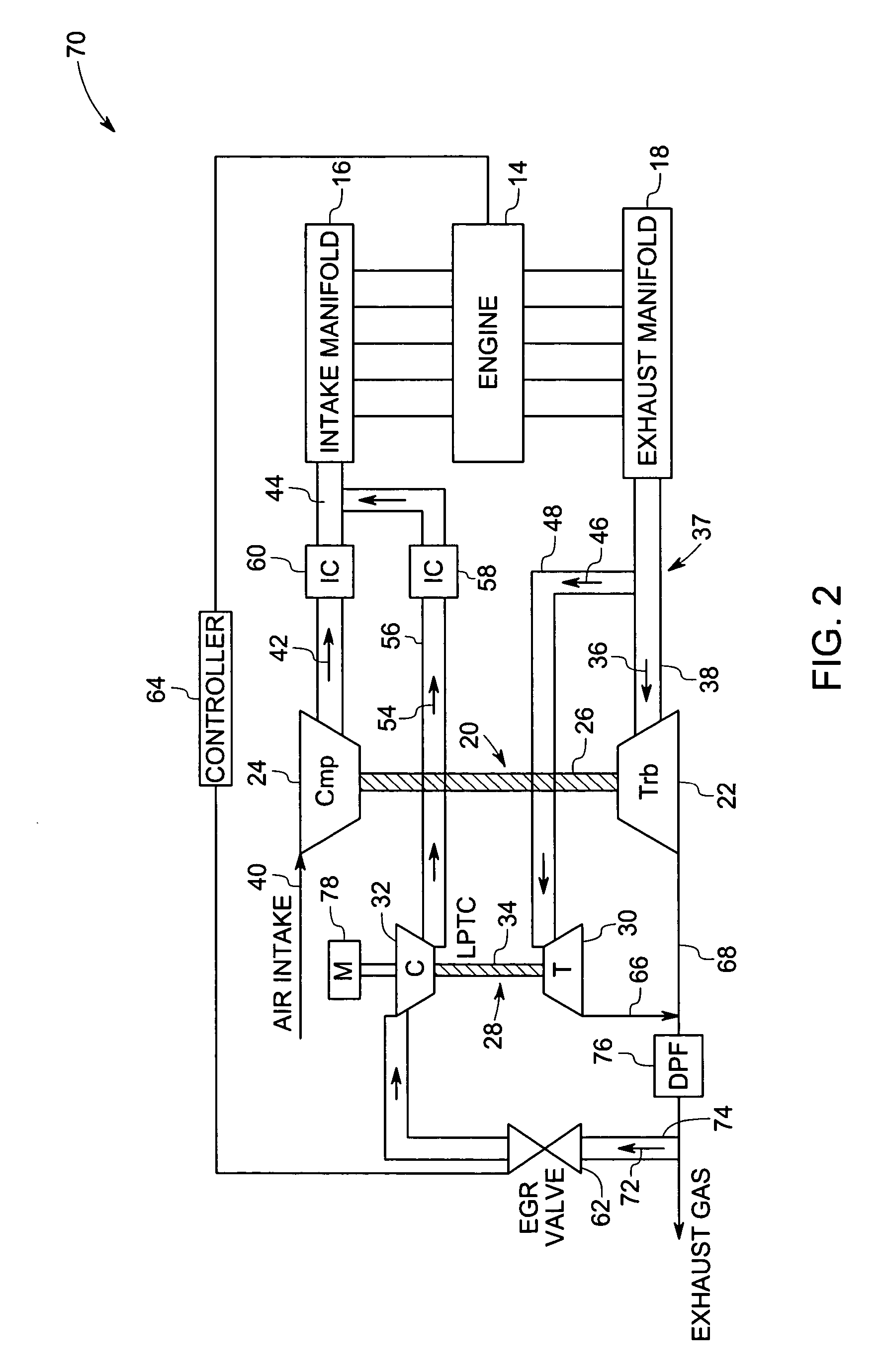Turbocharged engine system and method of operation
a turbocharged engine and engine technology, applied in the field of engine systems, can solve the problems of difficult substantial impact on the specific fuel consumption (sfc) and particulate matter emissions, and inability to provide efficient control of the exhaust gas circulation
- Summary
- Abstract
- Description
- Claims
- Application Information
AI Technical Summary
Benefits of technology
Problems solved by technology
Method used
Image
Examples
Embodiment Construction
[0017] As discussed in detail below, embodiments of the present technique function to reduce emissions in turbocharged internal combustion engine systems such as employed in locomotives and vehicles. For example, the internal combustion engines may include spark ignition engines or compression-ignition engines, such as diesel engines. In particular, the present technique includes employing selective exhaust gas recirculation with the intake air within the turbocharged internal combustion engine system to minimize emissions, such as NOx emissions, from the system. In particular, the mixing of the exhaust gases with the intake air lowers the peak combustion temperature and the adiabatic flame temperature, thereby reducing the emissions from the system.
[0018] Turning now to the drawings and referring first to FIG. 1, a turbocharged internal combustion engine system 10 having an exemplary exhaust gas recirculation mechanism 12 is illustrated. Examples of the turbocharged internal engin...
PUM
 Login to View More
Login to View More Abstract
Description
Claims
Application Information
 Login to View More
Login to View More - R&D
- Intellectual Property
- Life Sciences
- Materials
- Tech Scout
- Unparalleled Data Quality
- Higher Quality Content
- 60% Fewer Hallucinations
Browse by: Latest US Patents, China's latest patents, Technical Efficacy Thesaurus, Application Domain, Technology Topic, Popular Technical Reports.
© 2025 PatSnap. All rights reserved.Legal|Privacy policy|Modern Slavery Act Transparency Statement|Sitemap|About US| Contact US: help@patsnap.com



